From Kobe Bryant's 'Dear Basketball' to Cher's 'Edith+Eddie,' here's our comprehensive guide to all the Oscar-nominated shorts
Think your Oscar prep work is done just because you’ve seen all nine Best Picture nominees? Think again. That’s because all 15 nominees in the three short film categories — Animated, Live Action, and Documentary — are now available for your viewing pleasure via most on-demand platforms in advance of the Academy Awards telecast on March 4. The lineup this year includes cartoons about basketball legends and CGI frogs, dramatic stories tackling school shootings and civil rights heroes, and nonfiction accounts of the opioid epidemic and elder abuse. Read on for Yahoo Entertainment’s quick thoughts about each of the nominated shorts and our picks for which will (and should) win the Oscar.
Best Short Film (Animated)
Dear Basketball
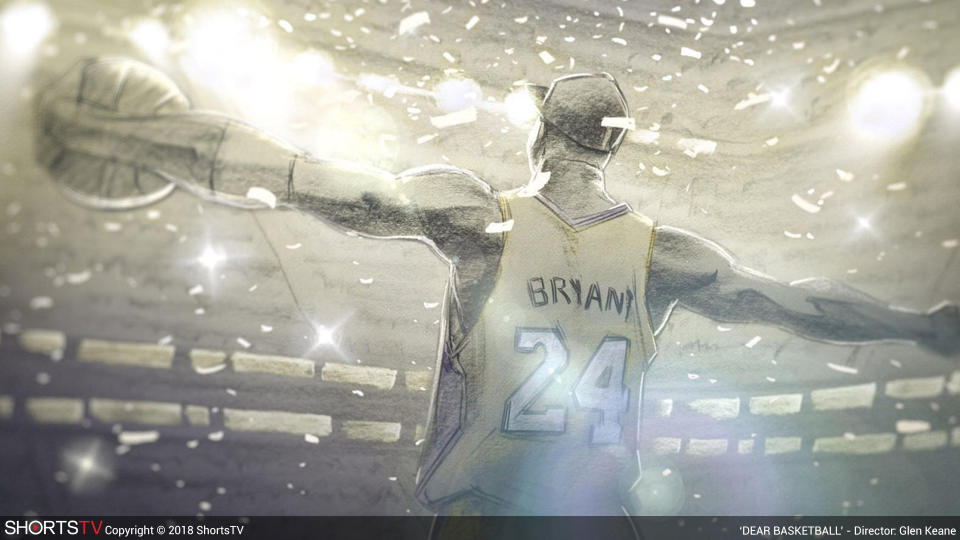
Animation legend Glen Keane brings his lush pencil work to basketball icon Kobe Bryant’s farewell to the game that defined his life. Bryant couldn’t ask for a better teammate than the artist responsible for drawing such iconic Disney characters as Ariel and the Beast, and Keane’s hand-drawn imagery — which practically flows off the screen, like a storyboard come to life — is unquestionably the star of Dear Basketball, which, at a mere five minutes, is the shortest nominee of the bunch. To be honest, it’s also the slightest, held back by Bryant’s heartfelt but leaden prose, which never truly soars alongside his animated counterpart. As a film, it’s more a victory lap for Keane than it is for its supposed star. (Dear Basketball can also be viewed on go90, which released the film. Both go90 and Yahoo are part of Verizon.)
Garden Party

It takes roughly seven minutes of setup to get to the dark punchline of Victor Caire and Gabriel Grapperon’s dialogue-free joke, but trust us: Your patience will be rewarded. And along the way, you’ll be treated to some of the most photorealistic animal animations this side of Pixar. Seriously, the computer-generated amphibian and reptilian stars of Garden Party — including frogs, toads, and one very inquisitive lizard — look as if they could be hanging out at your local creek instead of the busted-up mansion where the action unfolds.
Lou
Speaking of Pixar, the studio has been a perennial presence in the animated short category going all the way back to the ’80s. This year, they’re represented by Lou, which played before Cars 3 in theaters. Like the feature film it accompanied, this isn’t necessarily the best example of the Pixar magic that animates features like Coco and shorts like La Luna. Essentially a schoolyard version of E.T., Lou combines the collected contents of a lost-and-found box into the titular hero, who proceeds to transform the class bully into the sweetest kid on the playground. It’s perfectly serviceable without being particularly inspired.
Negative Space
Negative Space has the inverse problem of Dear Basketball in that the text — in this case, Ron Koertge’s 2014 poem — is more evocative than the animation style. Not that the animation by Max Porter and Ru Kuwahata, who employ stop-motion techniques to illustrate this wistful tale of a grown son bidding farewell to his father, is badly executed per se. It’s just not a particularly distinguished example of an increasingly vanishing art. Fortunately, Koertge’s language picks up the slack, fully capturing the mixture of joy and grief that the visuals only hint at.
Revolting Rhymes
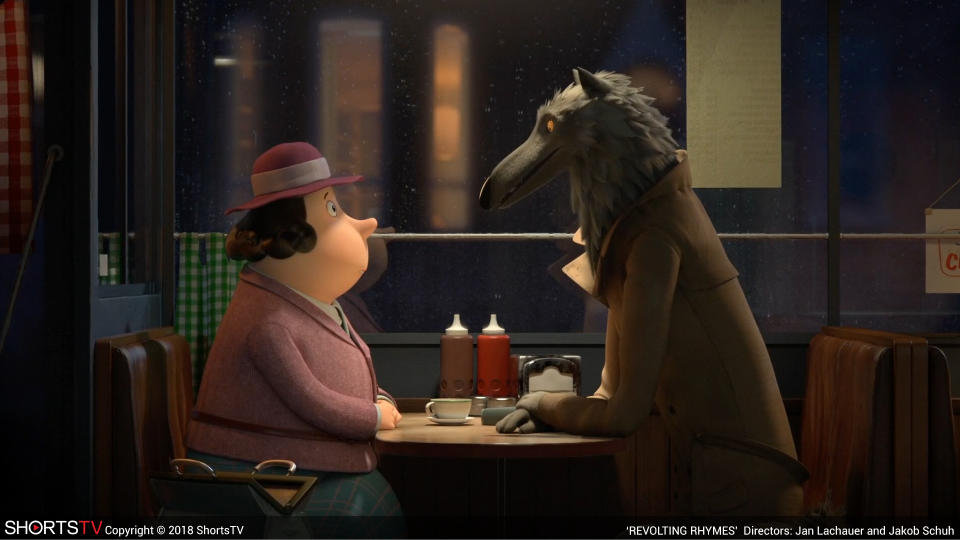
Few authors are as challenging to adapt as Roald Dahl, and this overlong recitation of his poetically ribald takes on vintage fairy tales like “Snow White” and “Little Red Riding Hood” — originally published as a collected edition in 1982 — is a case study in how his peculiar genius can often get lost in translation. Made for British television and featuring an all-star vocal cast that includes two Game of Thrones vets (Rose Leslie and Isaac Hempstead Wright), Revolting Rhymes is a stiffly animated, mostly sanitized version of Dahl’s words. Better to spend its 30-minute runtime rereading the original to your kids instead.
Will win: Keane’s exalted status among animators — coupled with Bryant’s extensive history with Los Angeles — makes Dear Basketball a serious competitor. But as this category has often been a place where underdogs triumph, Garden Party will likely be the beneficiary if history repeats itself this year.
Our pick: In an overall weak collection of animated shorts, Garden Party is the clear standout in terms of both style and content. We’d love to see an animated feature from this duo — or, failing that, a nature documentary.
Best Short Film (Live Action)
Dekalb Elementary
Oscar nominations were announced in mid-January, well before the national conversation about school shootings went from being a background hum to a loud, and very public, debate. With Parkland and #NeverAgain now dominating headlines, Reed Van Dyk’s dramatic depiction of the standoff between a would-be shooter (Bo Mitchell) and a brave receptionist (Tarra Riggs) will attract the most attention — and, should it win the Oscar — scrutiny, of all five nominees. The film’s explicit endorsement of words over weapons as a means to avert these tragedies makes it clear which side of the debate Van Dyk stands on. At the same time, Riggs’s sharply etched performance drives home how shootings still result in casualties even when bullets aren’t fired.
The Eleven O’Clock
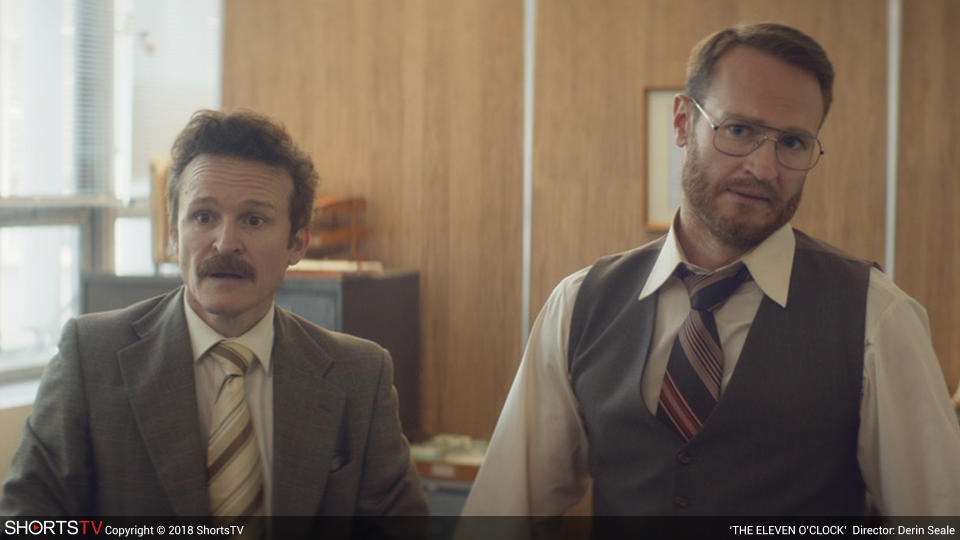
A Monty Python sketch that the Python boys never wrote, The Eleven O’Clock pits two alleged psychiatrists against each other in an effort to prove which of them is the real shrink … and which is supposed to be having his head shrunk. In lieu of John Cleese and Eric Idle and/or John Cleese and Michael Palin, director Derin Seale tapped writer Josh Lawson and Justified’s Damon Herriman to act out all the veddy British comic bantering and bickering. These aren’t Holy Grail-level yuks, of course, but there are enough chuckles to put this sketch on par with the Cleese-less later seasons of Flying Circus.
My Nephew Emmett
The “Emmett” of the title is Emmett Till, whose infamous 1955 murder in Mississippi provided part of the spark for the civil rights movement several years later. Director Kevin Wilson Jr. told the slain teenager’s full story in his 2009 play, The Emmett Till Story, so for his sophomore short he shifted the focus to Till’s uncle, Mose Wright, portrayed by L.B. Williams, who passed away last year. Having learned second-hand about his nephew’s “crime” of whistling at a white woman (an accusation that has now almost conclusively been revealed as false), Mose waits for the retribution he knows is coming, hoping against hope that he can avert tragedy. It’s a small but potent piece of a much larger story, making it ideal for the short film format.
The Silent Child
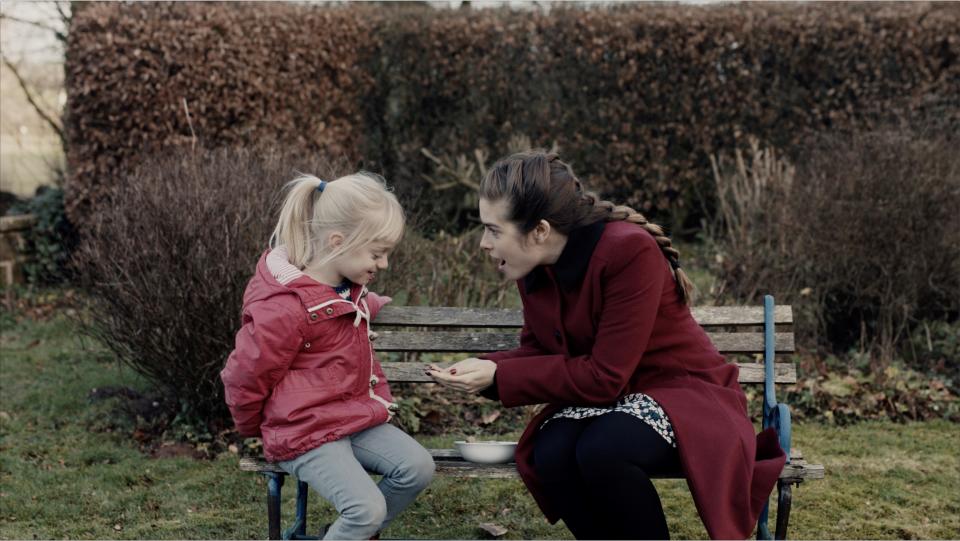
For better and for worse, The Silent Child doesn’t play coy about the fact that it exists to advance a specific agenda. A postscript that follows the heartbreaking final shot — in which a little deaf girl (Maisie Sly) gazes forlornly after the well-meaning language teacher (Rachel Shenton) who has been blocked from helping her adjust to life in a school setting — emphasizes the filmmakers’ hope that the movie “contributes in the fight for sign language to be recognized in every school across the globe.” That’s a goal we can all support, to be sure, but it also retroactively makes every creative choice, from the girl’s almost comically neglectful family to the teacher’s apparently boundless free time, seem calculated to wring maximum tears. At least the onscreen relationship between Shenton and Sly feels genuine throughout.
Watu Wote/All of Us
The lone foreign language nominee in this year’s crop comes from Kenya by way of Germany. Director Katja Benrath dramatizes a real-life event in which the East African jihadist group Al-Shabaab hijacked a chartered bus with the intention of slaughtering its Christian passengers. Their efforts were stymied by Muslim riders, who protected their fellow riders even when threatened with death themselves. Moments of dramatic clunkiness suggest that this might have been a story more fitting for the documentary treatment, but Watu Wote’s message of tolerance crosses borders.
Will win: Current headlines can’t help but give Dekalb Elementary the edge, and — win or lose — the film should absolutely be screened in schools.
Our pick: While it’s not the most thought-provoking or emotional of the group, The Eleven O’Clock is the nominee whose execution is most on par with its ambition.
Best Documentary (Short Subject)
Edith+Eddie
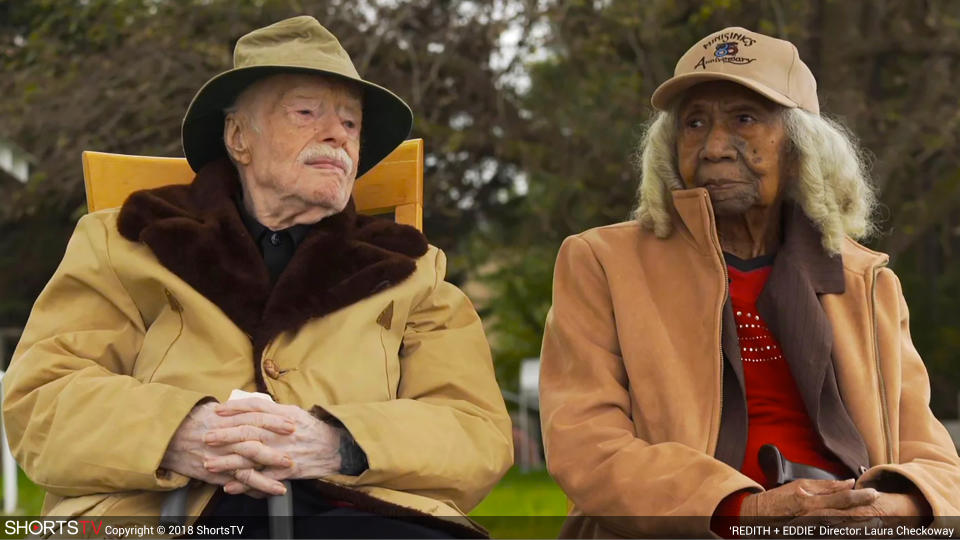
Chances are that you heard the story of Edith Hill and Eddie Harrison, a pair of nonagenarians who charmed the world when they tied the knot in 2014, becoming America’s oldest interracial married couple. Sadly, their romance had a tragic end, one that’s detailed with remarkable intimacy in Laura Checkoway’s portrait of their final days together when they were separated by forces beyond their control. It’s worth noting that Edith+Eddie isn’t at all objective in terms of whom it wants to valorize and vilify, and it does often feel as though there’s more to the story than Checkoway is able to tell. That said, elder care remains a topic that the country is reluctant to talk about, all too often resulting in circumstances like these where others’ convenience appears to be prioritized over someone else’s humanity.
Heaven Is a Traffic Jam on the 405
Having endured electroshock therapy and stints in mental institutions during her prolonged battle with depression, L.A. resident Mindy Alper has since discovered that art provides the best therapy. Frank Stiefel’s film observes its subject as she pours her heart into sketches and sculptures and bares her soul about the internal demons still plaguing her. Truthfully, Heaven would be a more effective film overall if it halved its 40-minute runtime, but for many it’ll be an intriguing introduction to an artist and her specific process.
Heroin(e)
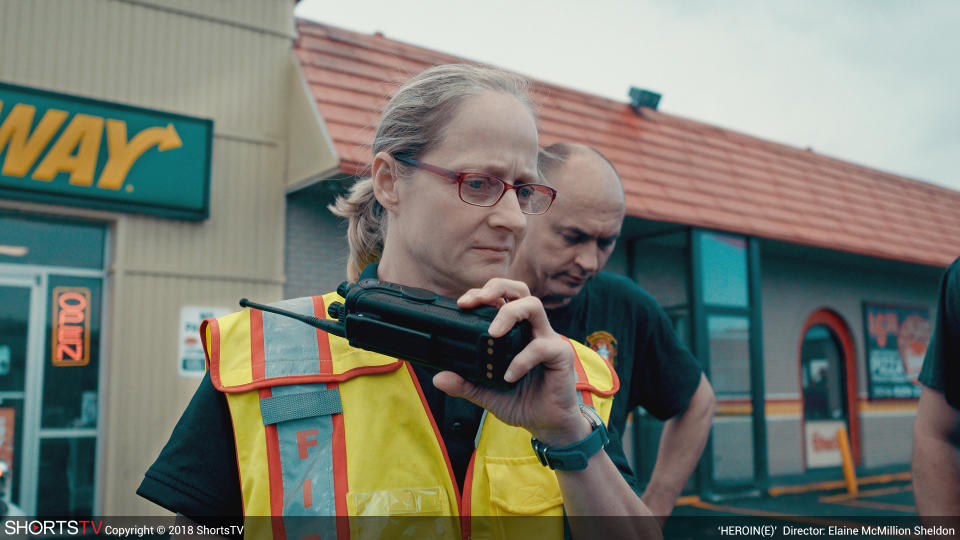
An up-to-the-minute account of the nation’s ongoing opioid epidemic, Heroin(e) sets viewers down in the rural community of Huntington, W.Va., where a trio of women — a fire chief, a judge, and a charity worker — are pushing back against the ravages of addiction. The larger political conversation surrounding opioids isn’t mentioned, and neither is President Trump (who carried the state by a large margin) and his still-ineffective “war on opioids.” Instead, Elaine McMillion Sheldon frames her short as a kind of street-level combat film, with her subjects encountering multiple casualties and doing what they can to help them … knowing full well that each day brings a fresh battle. (Heroin(e) can also be streamed on Netflix.)
Knife Skills
Nestled in Cleveland’s upscale Shaker Heights neighborhood, Edwins Restaurant opened its doors in 2013 staffed entirely by former convicts who had since been trained in the fine art of making and serving French cuisine. Thomas Lennon’s cameras are there to record the six-week training period leading up to opening night, as well as the sometimes-tumultuous months that follow. It’s an interesting story, but serious foodies and Top Chef fans will be left hungry for more details about the ins and outs of the Edwins kitchen, as Knife Skills is mostly focused on the challenges faced by the staff as they adjust to life outside of prison.
Traffic Stop
In 2015, Austin, Texas, schoolteacher Breaion King was pulled over by a police officer in an encounter that quickly escalated into violence. The entire incident was captured by dashboard cameras, and that footage — which previously circulated online — makes up the bulk of Kate Davis’s account of that day, supplemented by a recent interview with the still-traumatized King. The Austin police department seemingly declined to participate in the film, but the video evidence makes a fairly damning case against certain members of the force, not just for the brutality displayed in the traffic stop but also for the dismissive way they treated King afterward. (Traffic Stop is also available on HBO GO, HBO NOW, and HBO On Demand.)
Will win: Edith+Eddie boasts a vocal champion (and high-profile executive producer) in the form of Cher, and her word will carry a lot of weight with voters — particularly the older demographic, who will probably also view the story as a cautionary tale.
Our pick: As a visual account of the opioid crisis, Heroin(e) is an invaluable addition to the on-the-ground reporting still being done, and it will also hold up as a crucial text when the history of this period is written.
Read more from Yahoo Entertainment:

